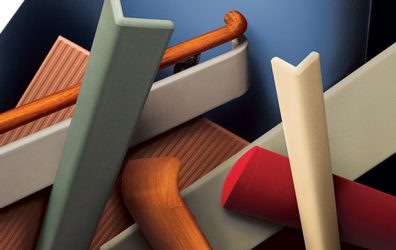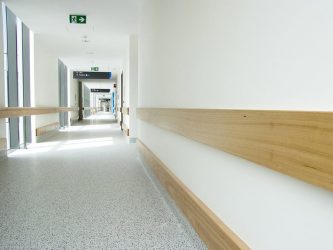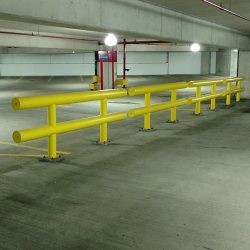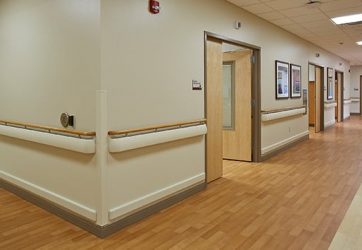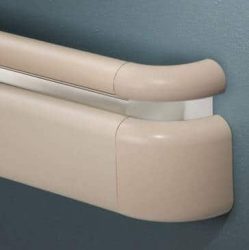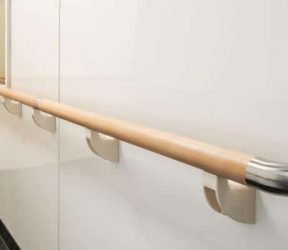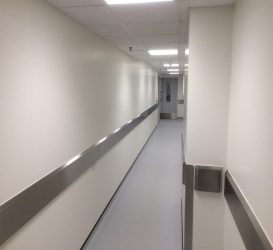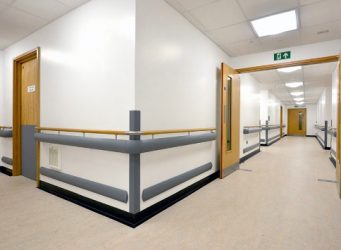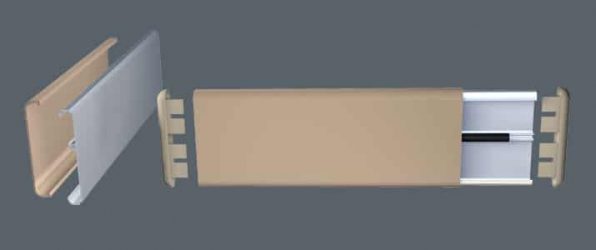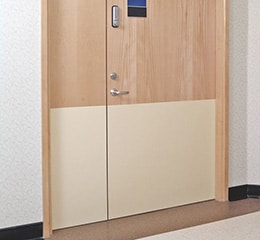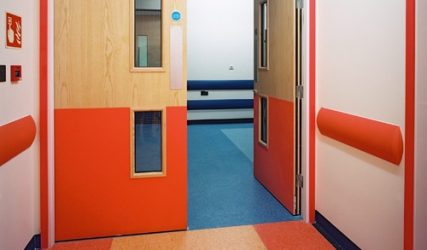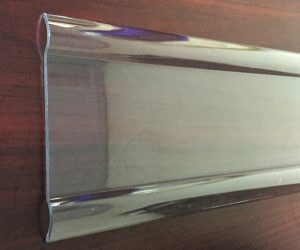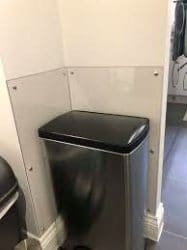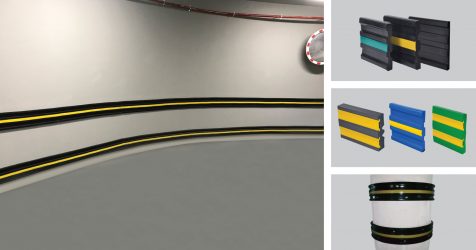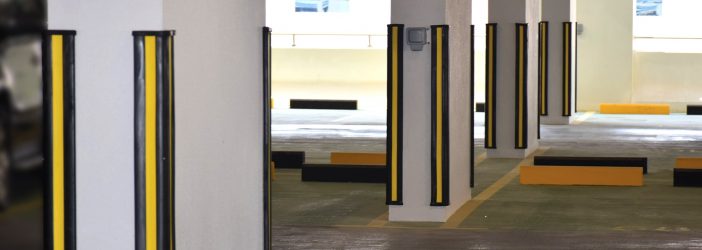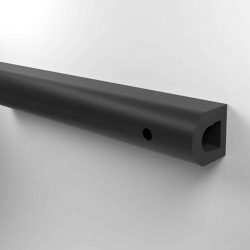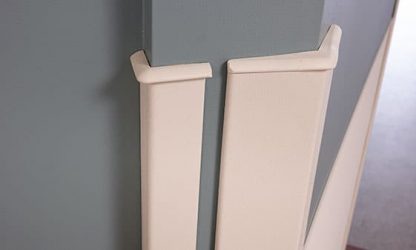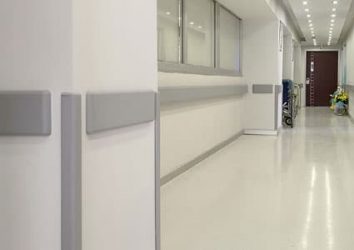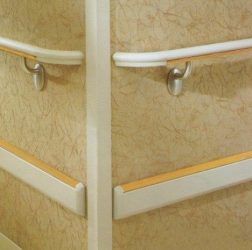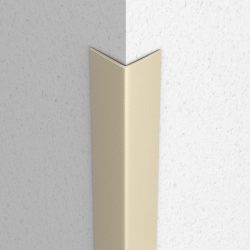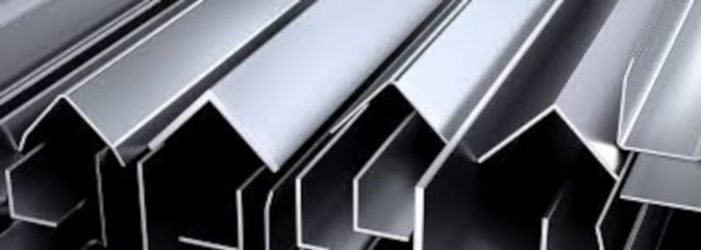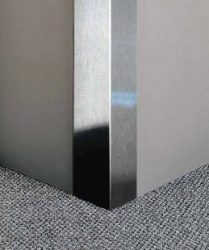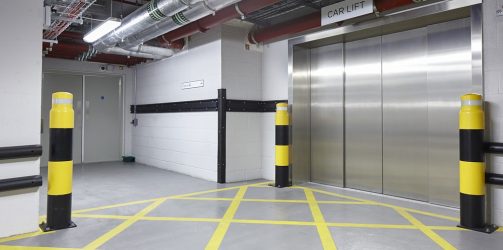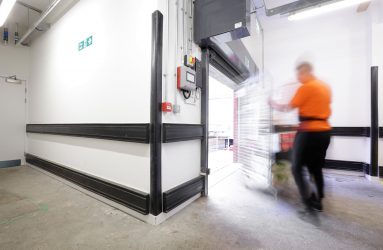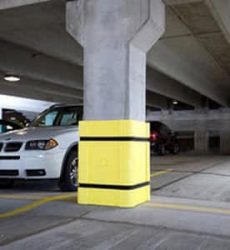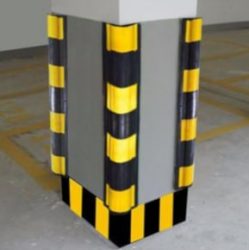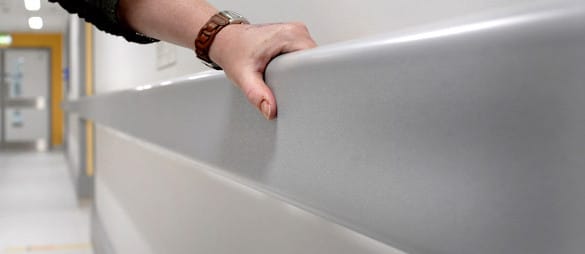Building Protection Systems
Introduction
Nowadays, the nature of moving activities in buildings has multiplied. Therefore, it has become necessary to take appropriate measures to protect the building elements internally and externally. KarZah, Advanced Materials, provides in Building Protection Systems suitable solutions for different building elements, like walls, columns, and doors. For that purpose, we install handrails, wall and door protection panels, corners protection, and integrated building protection systems. In addition to the practical use of these systems, they give an aesthetic touch to the place.
Materials of Building Protection Systems
Companies manufacture handrail, wall protection, door protection, and corner guard systems from several materials, namely:
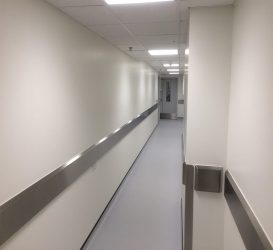
- Aluminum
- Polyvinyl Chloride PVC
- Rubber
- Reinforced polymer mixtures (bases, ends, and corner guards)
- Wood
- Stainless steel
Where Do We Use Building Protection Systems?
We use handrails, wall protection, door protection, corner guard systems for interior and exterior building elements. Its usage can extend to include any other building elements subject to friction or impact with moving objects. These systems are installed after completing all construction and finishing works. Examples of where we can use building protection systems are:

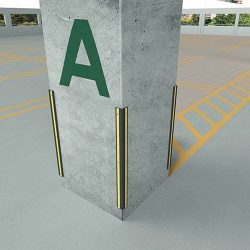
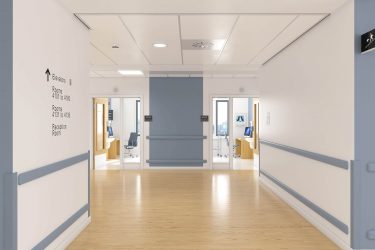
- Hospital buildings
- Company offices
- Schools
- Government buildings
- Malls and convenience stores
- Car parking areas
Elements of Building Protection Systems
Building Protection Systems has several elements:
Handrails
Handrail systems help patients, the elderly, and people, in general, lean on them for support while walking. They are appropriate for corridors in hospitals, company buildings, and other buildings. Handrail systems have several types, including:
Handrail, Aluminum with PVC
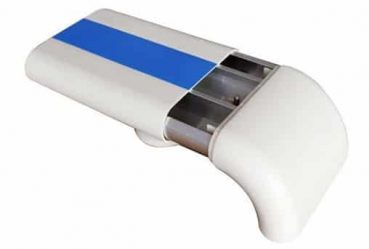
This system comprises:
- Aluminum profile
- PVC cover
- Mounting brackets
- Fasteners, special screws, and bolts for all wall types
- Rubber tape to absorb vibrations
- PVC reinforced polymer bases
- PVC reinforced polymer ends
- Internal/external corner guards made of PVC reinforced polymer mixtures
Handrail, Wooden with Stainless Steel
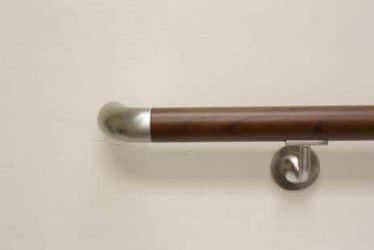
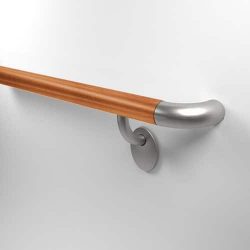
It consists of wood in its warm, luxurious colors, with stainless steel with a beautiful glaze surface.
Handrail, Stainless Steel
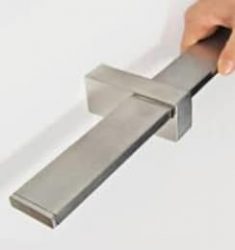
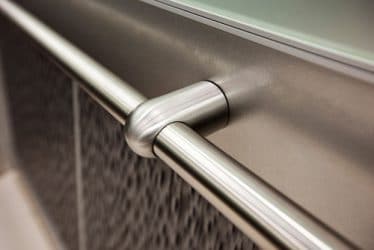
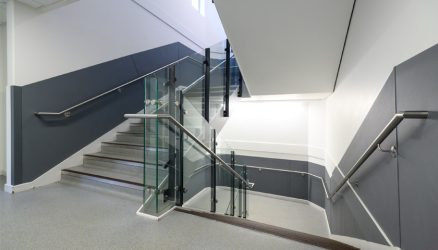
All parts of this system are made of stainless steel. There are many types, sizes, and colors.
Wall Protection | Wall Guard
Wall protection systems can be installed and used on all types of walls. We install them indoors to protect the walls from friction and collision with cars, beds, chairs, and other moving objects. Examples include installed systems in hospitals, commercial offices, and other public places. Wall protection systems are mounted externally, too. We install them in parking lots, on outdoor building pillars, loading and unloading platforms, and others. Below are some of these systems:
Wall Protection | Wall Guard, Aluminum with PVC
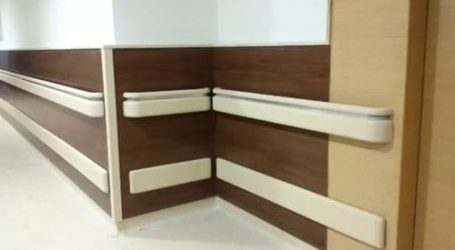
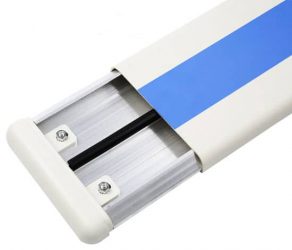
We use this system to protect the interior walls. It consists of the following components:
- Aluminum profile
- PVC cover
- Mounting brackets
- Fasteners
- Rubber tape
- PVC reinforced polymeric bases
- PVC reinforced polymeric ends
- Corner guards made of reinforced PVC
Wall Protection | Wall Guard, PVC Sheets
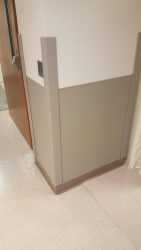
We use this system to protect the interior walls. In this system, colored PVC sheets are cut to the required size. Then we install those panels on the walls at the desired location. For this, we use glue, silicone, or screws.
Wall Protection | Wall Guard, Acrylic Boards
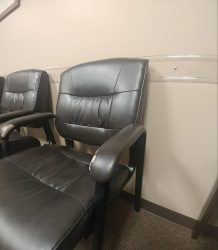
We use this system to protect the interior walls. These boards come as transparent or colored. We cut the boards to the required dimensions, then fix them using stainless steel fixing screws.
Wall Protection | Wall Guard, Rubber Systems
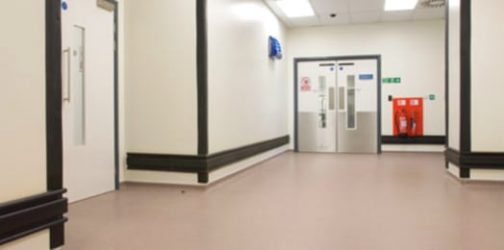
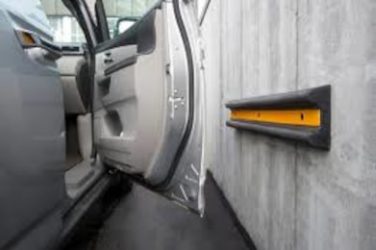
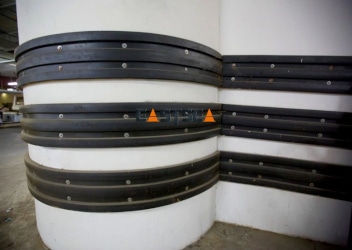
We use this system to protect the external walls. It is a simple system with different sizes and colors that suit the customer’s needs. The elements of this system consist of an aluminum base and a protecting rubber cover installed on that base.
Corner and Column Protection | Guard
These systems protect the corners and columns of buildings from impacts and friction caused by moving objects, trolleys, and vehicles. In addition, these systems protect children from colliding with the building’s relatively sharp corners. There are several types of these systems:
ِCorner and Column Protection | Guard, Aluminum with PVC
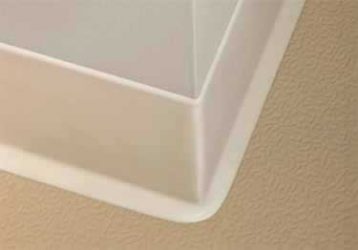
We use this system to protect the interior edges and columns of the building. It consists of the following components:
- Aluminum profile
- PVC cover
- PVC top & bottom ends
- Studs, screws, and bolts for all types of walls
Corner and Column Protection | Guard, PVC
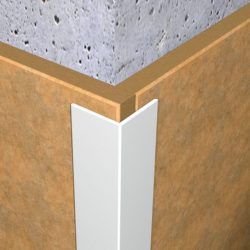
We use this system to protect the interior corners and columns of the building. First, it is made of PVC. Then, we fix it to the interior edges of the building using silicone material or glue.
Corner and Column Protection | Guard, Stainless Steel
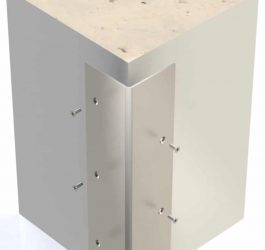
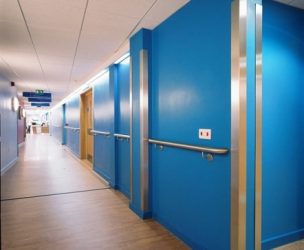
We use this system to protect the interior corners and columns of the building. First, it is made of stainless steel. Then, we fix it to the interior edges of the building using fishers and screws, silicone, or glue.
Interior Corner and Column Protection | Guard, Rubber
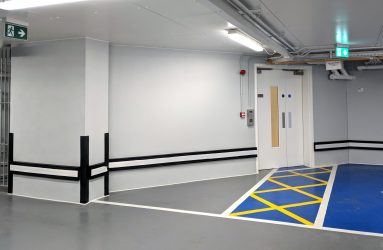
We use this system to protect the interior corners and columns of the building. And it is made of rubber. Then, we fix it to the interior edges of the building using silicone material or glue.
Exterior Corner and Column Protection | Guard, Rubber
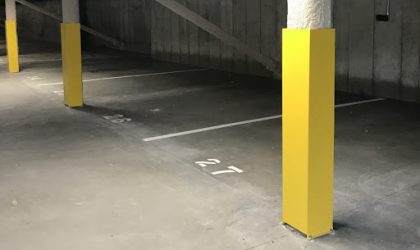
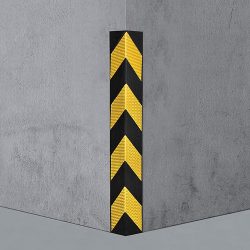
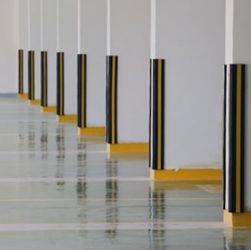
We use this system to protect the exterior corners and columns of the building. It consists of an aluminum base and a rubber top cover. It is available in different colors and sizes, depending on the customer’s requirements and choice.
Features of Building Protection Systems
Building protection systems have the following advantages:
- Protect the walls and corners of the interior and exterior of buildings during the collision or contact with moving objects
- Handrails give the elderly and patients support while walking
- Protect children by reducing the impact of a collision while playing or running
- Thanks to the various shapes and colors, they give walls and corners an aesthetic look
- Building protection systems do not require regular maintenance. We only need to replace the defective part with the new one.

